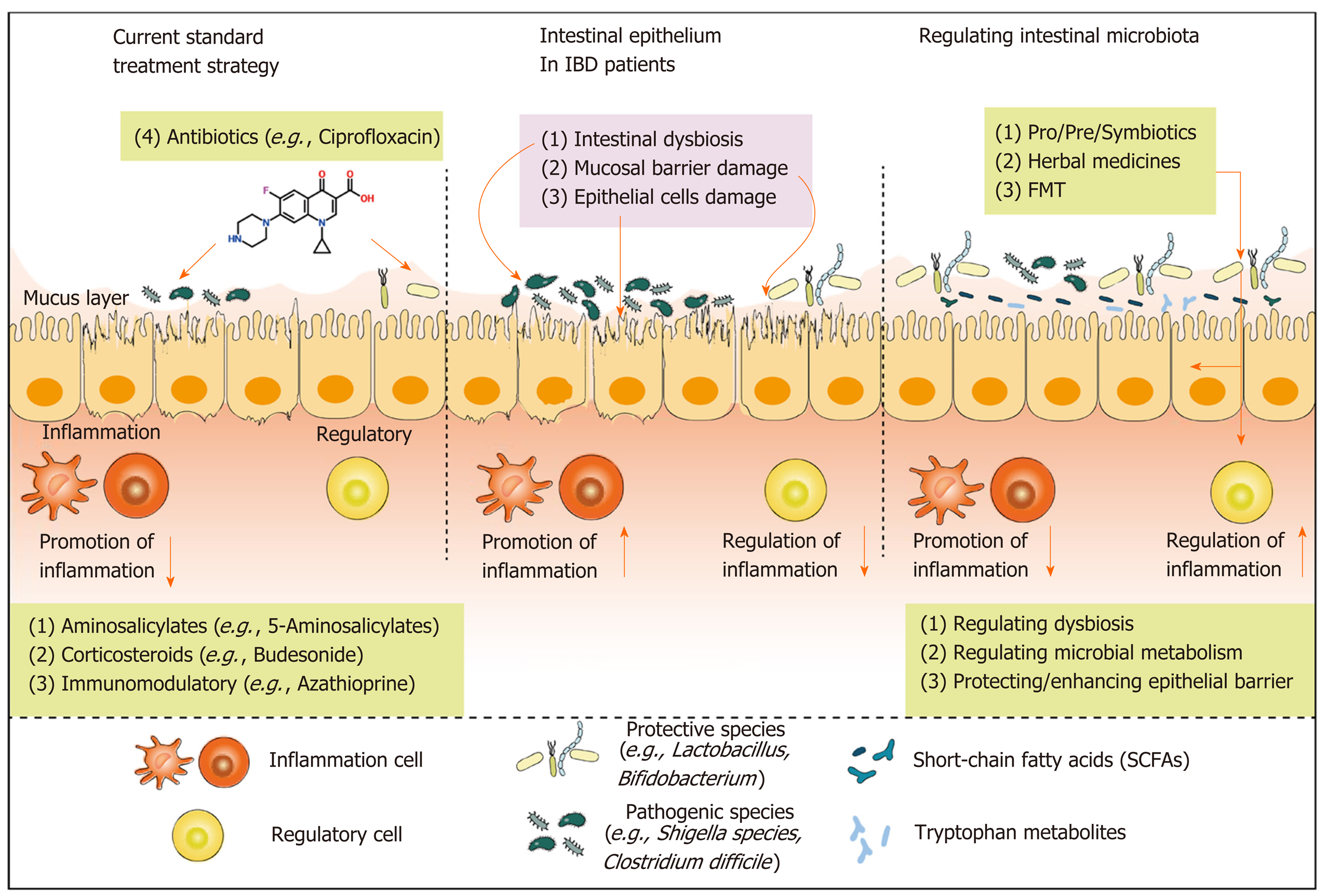Copyright
©The Author(s) 2020.
World J Gastroenterol. Aug 14, 2020; 26(30): 4378-4393
Published online Aug 14, 2020. doi: 10.3748/wjg.v26.i30.4378
Published online Aug 14, 2020. doi: 10.3748/wjg.v26.i30.4378
Figure 2 Primary mechanisms of standard treatment strategy and regulating intestinal microbiota strategy for inflammatory bowel disease.
Current standard therapeutic medications for inflammatory bowel disease (IBD) are antibiotics (e.g., ciprofloxacin), aminosalicylates (e.g., 5-aminosalicylates), corticosteroids (e.g., budesonide) and immunomodulatory agents (e.g., azathioprine), and the mechanism mainly involves inhibiting the development of inflammation in the intestine. Intestinal dysbiosis is often found in IBD patients, which is manifested in higher abundance of pathogenic species (e.g., Shigella species and C. difficile) and less abundance of protective species (e.g., Lactobacillus and Bifidobacterium). However, interventions targeting intestinal microbiota, such as probiotics, prebiotics, symbiotics, herbal medicines and fecal bacteria transplantation exert therapeutic action primarily through the mechanism of correcting dysbiosis. Furthermore, the treatment strategy of regulating intestinal microbiota are also involved in regulating microbial metabolisms (e.g., short-chain fatty acids and tryptophan metabolites), and protecting/enhancing the intestinal epithelial barrier. IBD: Inflammatory bowel disease; FMT: Fecal bacteria transplantation.
- Citation: Yue B, Yu ZL, Lv C, Geng XL, Wang ZT, Dou W. Regulation of the intestinal microbiota: An emerging therapeutic strategy for inflammatory bowel disease. World J Gastroenterol 2020; 26(30): 4378-4393
- URL: https://www.wjgnet.com/1007-9327/full/v26/i30/4378.htm
- DOI: https://dx.doi.org/10.3748/wjg.v26.i30.4378









